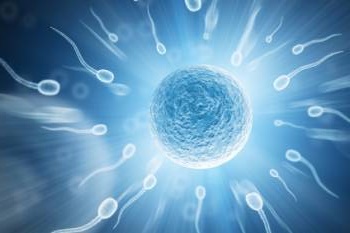Premature Ejaculation
 Premature Ejaculation (PE) is one of the most common sexual disorders today. Whilst Erectile Dysfunction tends to be more common among older men, premature ejaculation tends to affect both younger and older men. Studies have shown that as many men in their fifties have PE as men in their teens and early twenties.
Premature Ejaculation (PE) is one of the most common sexual disorders today. Whilst Erectile Dysfunction tends to be more common among older men, premature ejaculation tends to affect both younger and older men. Studies have shown that as many men in their fifties have PE as men in their teens and early twenties.
Premature ejaculation is said to occur, when a man ejaculates earlier than he or his partner would like him to. If it happens on a regular basis, it can lead to unsatisfactory sexual encounters for both partners, and with it, increase performance anxiety, further worsening the problem.
In a study conducted by Professor Adaikan (Premature Ejaculation Prevalence and Attitudes - PEPA), it was found that about one-third of Singaporean men suffer from some form of PE, which is similar to prevalence studies conducted elsewhere. According to the PEPA study, Singaporean men are very conscious of their partner's sexual satisfaction, and this is their main motivation for seeking PE treatment.
Causes of Premature Ejaculation
The exact cause of premature ejaculation is not known. There are probably complex interactions between both psychological and biological factors which result in PE.
Possible psychological causes may include early sexual experiences which have formed a pattern which may be difficult to change. For instance, rushing to climax in order to avoid being discovered. Some men who have Erectile Dysfunction, may be anxious about maintaining their erection, and thereby form the habit of rushing to climax.
Several biological factors may contribute to premature ejaculation. These may include:
• Abnormal hormonal levels
• Abnormal levels of brain neurotransmitters
• Abnormal reflex activity of the ejaculatory system
• Inflammation/infection of the prostate or urethra
• Thyroid hormone disturbances
Symptoms and Diagnosis
Premature ejaculation is said to occur if you ejaculate sooner than you and your partner wish during most sexual encounters. In more severe instances, some men ejaculate even before penetration. As a result of this, there is often decreased sexual pleasure for one or both parties, feelings of guilt, embarrassment or frustration.
The diagnosis of PE is based on symptoms. Be frank and open with your doctor. The better your doctor understands your problem, the more he/she will be able to help you. Occasionally, a physical examination or several tests may need to be performed, if your doctor feels that a physical problem is likely.
Treatment of Premature Ejaculation
1. Desensitization:
The fastest way to delay ejaculation is to reduce penile sensation. This may be achieved in several ways eg. using a thicker or double-layered condom, anaesthetic creams or sprays. Use of anaesthetic, whist useful, can however be messy and reduce the sensations in both the penis and vagina, thus making sex less pleasurable.
2. Behavioural Techniques:
The "Stop and Start Technique" and "squeeze" techniques involve a series of exercises which are practiced over time. They help the man increase the sense of control over his orgasms.
The "Stop and Start Technique" was developed by Masters and Johnson. In this method, the man brings himself close to orgasm but below "the point of no return", then reduces stimulation to allow arousal to subside. Once adequately below this point, stimulation is resumed. This cycle may be repeated several times before ultimately achieving an orgasm. This rest period may be for several seconds or minutes and may involve slowing the rate, rather than the complete cessation of thrusting. During this rest period, the man may find it useful to focus his attention elsewhere, such as by kissing or caressing his partner.
The "Squeeze Technique" is where the man squeezes the top end of the penis when he is just about to ejaculate. Squeezing in this manner helps allow arousal to subside and delay ejaculation. This is somewhat similar to the "Stop and Start Technique".
3. Psychological Techniques:
There are many psychological treatments available, and these would include: cognitive behavioural therapy (CBT), psycho-dynamic therapy, couples therapy and hypnotherapy. Combining medications with psychological therapies may offer the best of both worlds.
4. Medication:
Until recently, PE was treated with traditional selective serotonin reuptake inhibitors (SSRIs) such as fluoxetine, fluvoxamine, paroxetine and sertraline. These anti-depressants have been found to be helpful in the treatment of PE as well, and so, whist not ideal in terms of dosing and efficacy, have been used for some time now. Using them on-demand tended to be less effective than daily dosing. On the other hand, as they have relatively longer half-lives, daily dosing meant that they are more likely to accumulate in the body, causing numerous side effects.
Dapoxetine (Priligy) is the first on-demand oral medication for the treatment of premature ejaculation. It is rapidly absorbed and eliminated, meaning that it can therefore be taken on-demand, with minimal accumulation in the body.
Have your doctor assess to see if you are suited for medication, and whether or not it would be beneficial for your PE.
The article above is meant to provide general information and does not replace a doctor's consultation.
Please see your doctor for professional advice.
